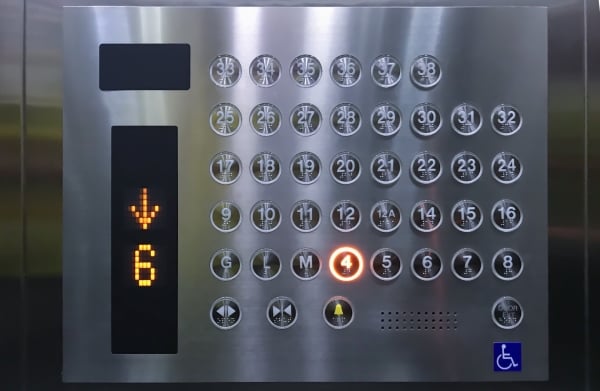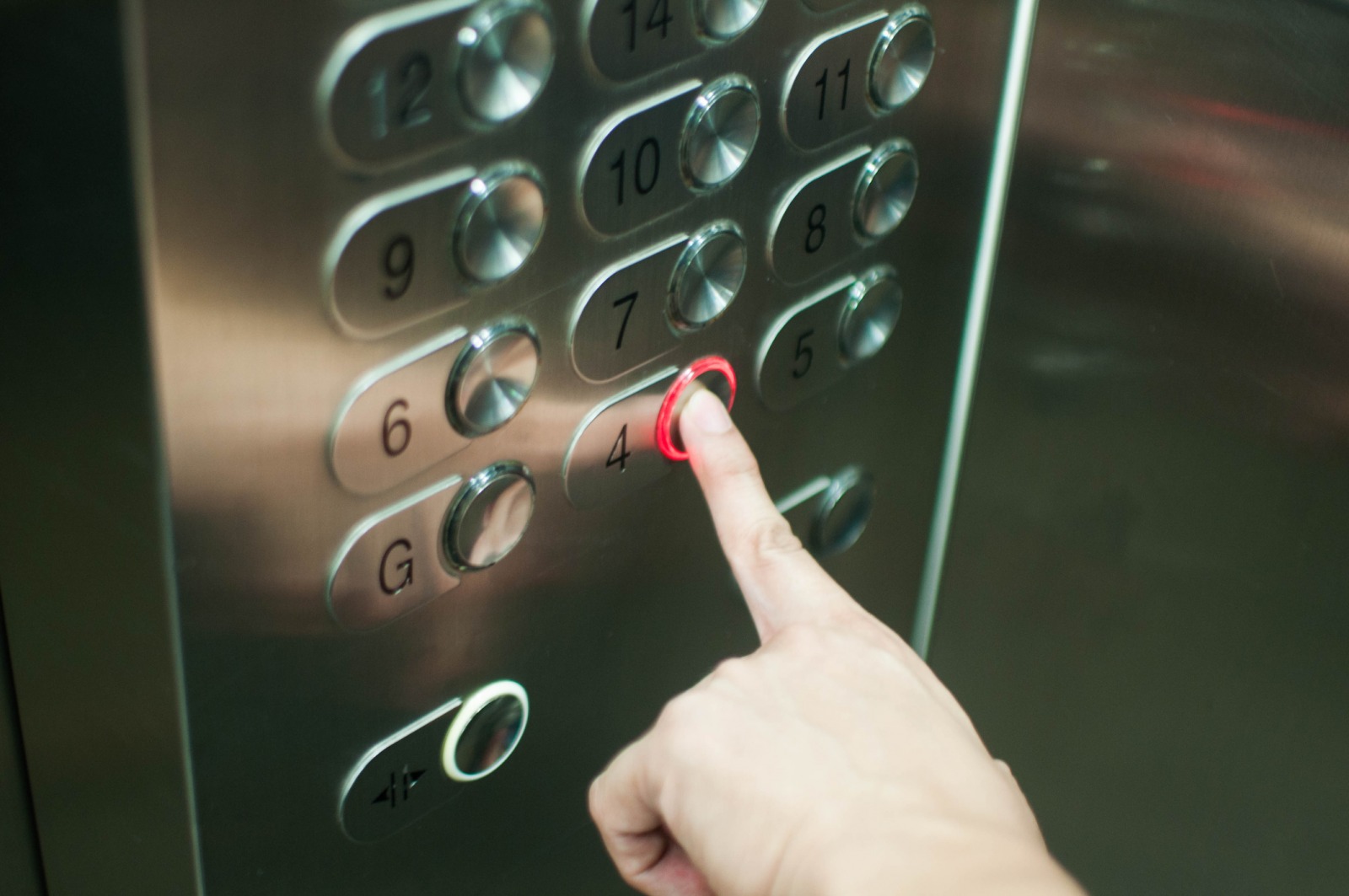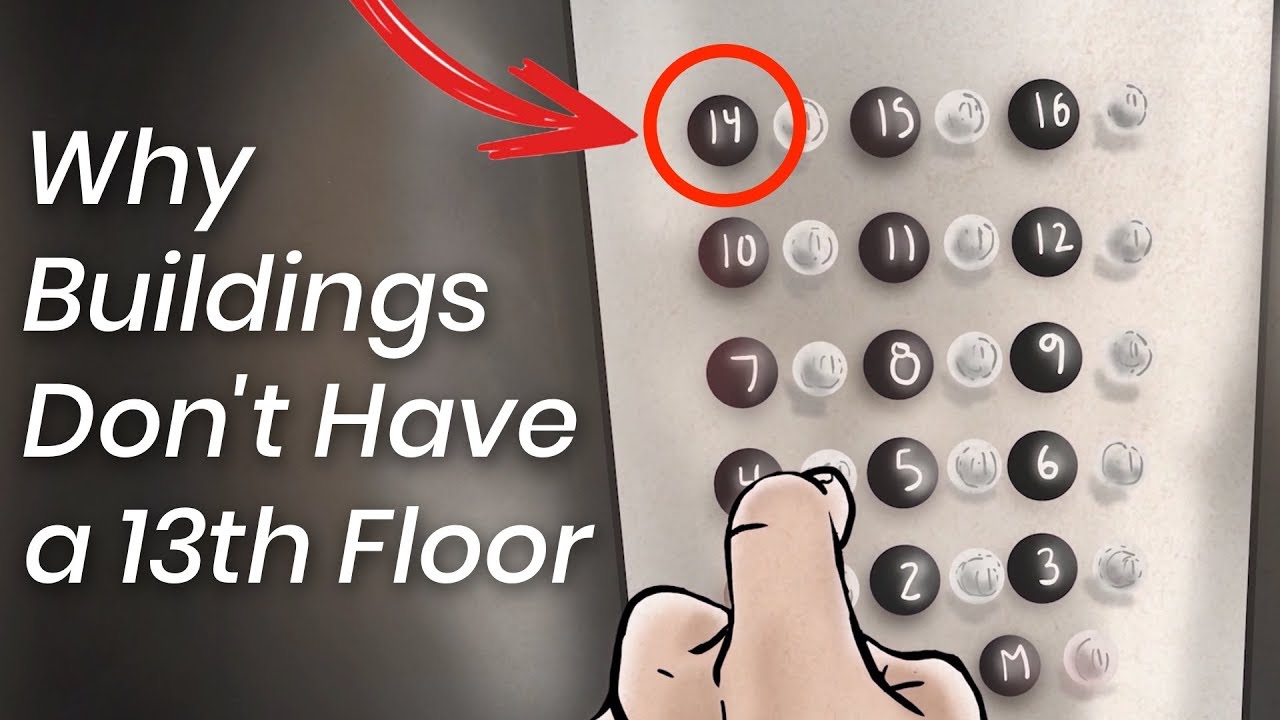Have you ever stepped into an elevator and noticed there’s no button for the 13th floor? It’s a small detail that often goes unnoticed, but once you spot it, you can’t help but wonder why.
You might think it’s just a quirky design choice, but there’s more to it. The absence of the 13th floor in many buildings is rooted in a mix of superstition and psychology. Curious about how these beliefs shaped our architecture and what it means for you as a building dweller or visitor?
Keep reading to uncover the fascinating history and reasons behind this architectural omission. You’ll be surprised at how deep this seemingly simple decision goes and how it might even influence your own perceptions and decisions.
Historical Superstitions
The number 13 is often seen as unlucky. This belief comes from old stories and myths. Many cultures see 12 as a complete number. There are 12 months in a year, 12 zodiac signs, and 12 hours on a clock. Adding one more makes it 13, which feels odd.
Some stories say 13 brings bad luck. In ancient times, people feared it. They thought bad things would happen if they used it. This fear has lasted for hundreds of years. Because of this, many avoid the number 13 in daily life.
Many countries have their own beliefs about 13. In some places, people skip the 13th floor in buildings. They think it will keep bad luck away. Some hotels do not have room number 13. They believe guests won’t stay there because of fear.
In some cultures, people plan events on dates that do not include 13. They want to avoid bad luck and ensure happiness. Superstitions like these are part of cultural practices. They show how deeply rooted these beliefs are in society.

Architectural Trends
Many early buildings skipped the 13th floor. People believed the number 13 was unlucky. Superstitions were strong back then. Builders wanted people to feel safe. So, they avoided this number. Elevator panels would go from 12 to 14. This made people happy and calm. It was a clever move by architects.
Modern buildings also skip the 13th floor. Not all, but many do. Superstitions still affect design choices today. People want to feel comfortable in buildings. Architects think about the feelings of people. They try to make everyone happy. So, skipping the 13th floor is still a common practice. It’s a mix of old beliefs and modern needs.
Psychological Impact
Many people feel uncomfortable with the number 13. It is called triskaidekaphobia. This fear can cause stress et anxiety. Buildings avoid having a 13th floor to make people feel better. This way, guests and workers feel calm et safe. Superstitions can have a big impact on people’s feelings. Avoiding the 13th floor helps to reduce fear.
People may avoid buying or renting on the 13th floor. They think it brings bad luck. This can affect a building’s business. Skipping the 13th floor can make sales easier. It helps keep customers happy. Builders want to make their buildings more popular. By skipping the 13th floor, they make it more appealing.

Economic Considerations
Builders often skip the 13th floor. Many people feel unlucky about it. This makes them avoid renting or buying on that floor. Developers aim to attract more customers. They remove the 13th floor to keep everyone happy. Buyers and renters feel better. They trust the building more. Numbers matter in property sales.
Properties with a 13th floor can lose value. Many buyers think it is bad luck. This belief affects the price. Without a 13th floor, properties might sell faster. Buildings seem safer to many people. They feel more secure and happy. Property value stays high. People like buildings without the 13th floor. It helps keep the market strong.
Global Perspectives
Buildings in many places skip the 13th floor. People fear the number 13. This fear is called triskaidekaphobia. In the États-Unis, many buildings go from floor 12 to 14. In Chine, the number 4 is unlucky. Buildings there skip the 4th floor. Some European countries also avoid the 13th floor. They think 13 is bad luck. It’s different in Italy. The number 17 is unlucky there. So, they skip the 17th floor. Each country has its unique ways.
Architects design buildings with culture in mind. They avoid unlucky numbers. This keeps people happy. In some places, architects use different names. The 13th floor becomes 12A. This makes people feel better. Some hotels use special designs. They add gardens or art on the 13th floor. This helps ease fears. Culture shapes how buildings look. Architects respect these beliefs.
Technological Solutions
Many buildings skip the 13th floor due to superstition and cultural beliefs. This tradition is common in Western architecture. Technological solutions could address this with digital displays, altering perceptions without changing physical structures.
Innovative Design Alternatives
Buildings can use smart designs to skip the 13th floor. Architects use clever tricks. They may label it as 12A or 14A. This helps ease superstitions. Designers plan around these beliefs. They want people to feel safe. Adding gardens or lounges on this floor can help. Such changes make it special. This way, people see it differently.
Technological Advancements In Construction
Modern tools make construction faster and better. Machines help build strong structures. Technology makes sure buildings are safe. Engineers use software to plan floors. They check every detail carefully. This keeps buildings secure and reliable. New materials also play a big role. They make buildings last longer. These advancements help build smarter and safer spaces.
Future Of Building Designs
Buildings often skip the 13th floor due to superstition and cultural beliefs about the number 13. The future of building design may continue to embrace these traditions while incorporating innovative features and sustainable elements. Architects might focus on balancing functionality and aesthetic appeal in creating spaces that respect cultural norms.
Emerging Trends
Buildings are changing fast. Smart technology is in new designs. Buildings talk to devices. They save energy et keep us safe. Green roofs are popular. They help the environment and look nice. Some buildings are even self-sufficient. They make their own power. Tall towers have glass walls now. They let in more light. This makes spaces bright et cheerful.
Potential Changes In Perception
People’s views on the 13th floor are shifting. Fear of number 13 is less now. New generations think differently. They see 13 as just a number. Some buildings now have a 13th floor. It’s a sign of change. Builders and designers are open to new ideas. This can lead to exciting designs.

Questions fréquemment posées
Why Do Buildings Skip The 13th Floor?
Many buildings avoid the 13th floor due to superstitions surrounding the number 13. This belief stems from cultural associations with bad luck. Developers choose to skip this floor to cater to tenants’ preferences and avoid potential concerns. This practice is common, especially in Western countries.
Is The 13th Floor Really Unlucky?
The belief that the 13th floor is unlucky is largely based on superstition. There is no scientific evidence supporting the notion that the 13th floor brings bad luck. However, cultural influences and historical beliefs often perpetuate this superstition, leading to its widespread acceptance in building design.
Do All Buildings Lack A 13th Floor?
Not all buildings skip the 13th floor. While many in Western countries do, some cultures don’t share the superstition. In places like Asia, the number 4 is often avoided due to similar beliefs. Building practices vary globally based on cultural norms and regional superstitions.
How Do Hotels Number Floors Without A 13th?
Hotels often renumber floors to omit the 13th. They may label it as 14 or use alternative numbering like 12A. This practice aims to avoid discomfort among guests who may be superstitious. It ensures a seamless experience without drawing attention to the missing floor.
Conclusion
Superstition keeps the 13th floor out of many buildings. Fear of bad luck influences decisions. Architects and developers skip it to please tenants. Some cultures deeply believe in the number’s curse. This affects real estate practices worldwide. Safety and comfort are top priorities.
People prefer avoiding unnecessary risks. Skipping the 13th floor becomes a tradition. It’s fascinating how beliefs shape our buildings. Next time you’re in an elevator, check the numbers. You might not see 13 there. A small detail with a big impact.
The mystery of missing floors continues to intrigue us.




